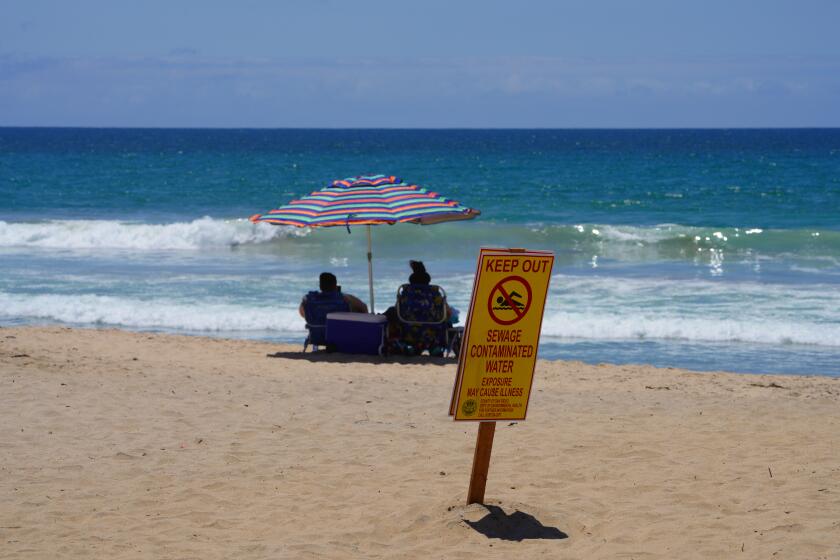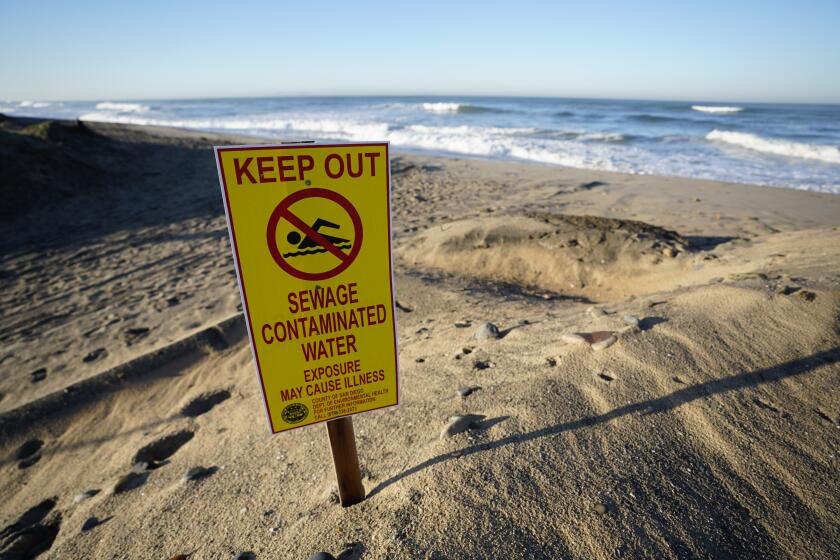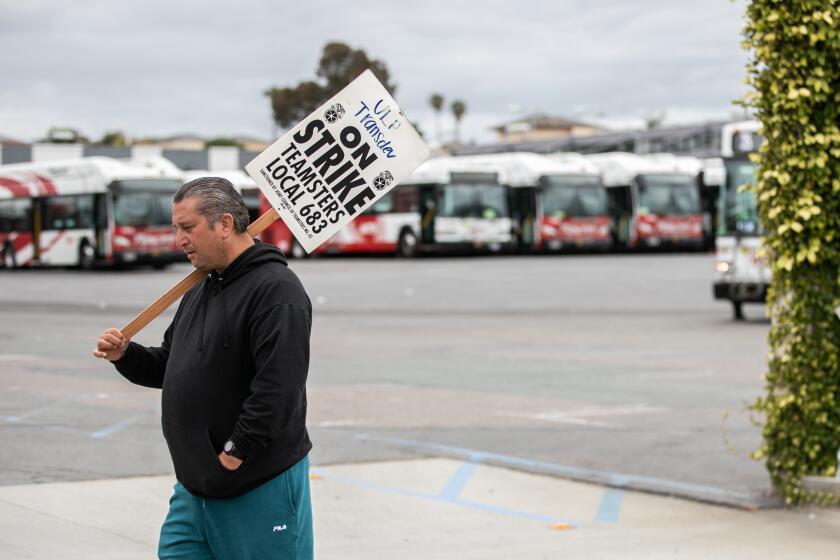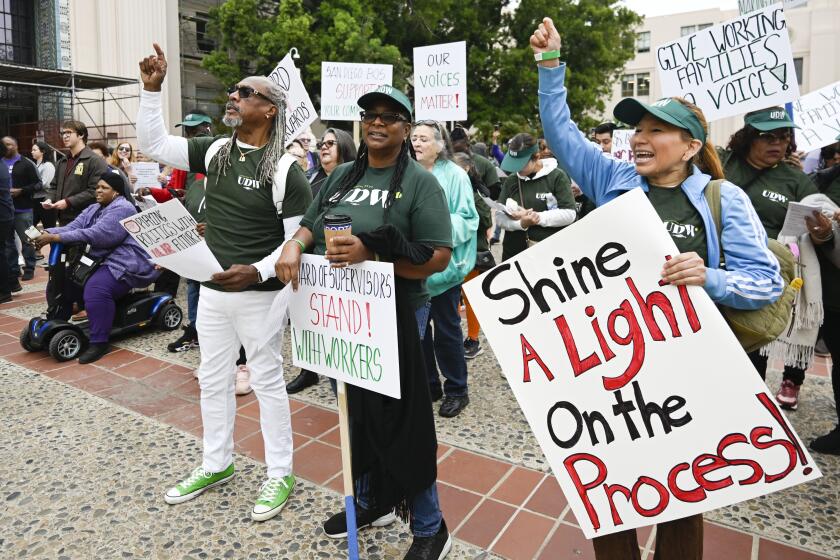San Diego freezes tenant evictions linked to coronavirus as landlords plead for help
The emergency ordinance specifically requires that all back rent be paid within six months
Renters in the city of San Diego who lose their jobs or get buried in medical bills because of the coronavirus pandemic are now shielded from being kicked out their housing through the end of May.
The City Council voted unanimously on Wednesday to freeze residential and commercial evictions tied to the escalating outbreak. The move comes as entire sections of the region’s economy have been ground to a halt, notably in industries that employ large numbers of low-income workers such as hospitality and tourism.
“We need to protect our most vulnerable residents from eviction,” said City Council President Georgette Gomez. She spearheaded the protections as a way to help San Diegans comply with the shelter-in-place directives health officials have said may slow the spread of the new coronavirus.
San Diego’s not alone in its actions. Cities from San Francisco to Los Angeles are now putting eviction moratoriums in place. Locally, Imperial Beach, Chula Vista, San Marcos and Oceanside, as well as the county of San Diego are also taking similar steps to shield renters from eviction.
However, local leaders stressed that the protections were not a free pass for San Diegans to stop paying their landlords.
The emergency ordinance specifically requires that all back rent be paid within six months, or sooner if Gov. Gavin Newsom withdraws his executive order granting local governments authority to enforce eviction moratoriums.
Tenants are also required to pay rent they owe upon moving out of a unit, unless their lease says otherwise, according to the newly adopted protections.
Tenants are required to notify landlords of their hardship by the date rent is due for the protections to hold up in court. They then have a week to provide documentation of their financial hardship related to the coronavirus outbreak.
Many landlords expressed anxiety about the move in the run-up to Wednesday’s vote, pleading with local elected leaders to aggressively pursue some kind relief for those grappling with mortgage and property tax payments during the eviction freeze.
“I’m just hoping everybody’s going to do the right thing and use their unemployment benefits, instead of saying, ‘I’m not going to be evicted, so I don’t have to worry about it,’” said Janet Hammer, who leases out several single-family homes in the city.
Hammer’s fears may not be unfounded. The grassroots activist group San Diego Tenants Union recently kicked off a campaign calling for general rent strike.
Rafael Bautista, an organizer with the group, said that the strike is aimed at pressuring elected officials to do more to help struggling tenants.
“Some landlords are shedding crocodile tears about not being about making millions off tenants,” he said. “We’re not going to shed a tear if a mega landlord loses a complex.”
While many elected leaders may disagree with those tactics, there seems to be a growing pressure to bail out those on the brink of poverty.
The federal government reached a bipartisan agreement on Wednesday for a nearly $2-trillion aid package that includes direct payments to most Americans, as well as funding for local and state governments.
San Diego City Councilman Scott Sherman, who voiced skepticism about the need for an eviction moratorium, especially while courts are shut down, said the city should be focused instead on getting money into the hands of renters and others struggling to make ends meet.
“If our goal is really to prevent rather than delay evictions, we should be making it a priority to put money into our own diversion programs that we already have and already exist that give people rental assistance,” he said.
While workers apply for unemployment and other programs such as paid family leave in record numbers, local governments and philanthropic organizations are putting together emergency funds. The San Diego Foundation, for example, has raised more than $6 million in a COVID-19 Community Response Fund.
The city also approved on Wednesday a deferred-interest loan program for small businesses. City officials said the program would be eligible to landlords who have at least one employee.
Such efforts are being backed by a chorus of voices who don’t always see eye to eye, from property owners to tenant groups to policy wonks.
Specifically, experts have voiced concerns that renters won’t be able to make good on back payments once the rent freeze thaws, possibly triggering another foreclosure crisis.
“Money’s got to get into the hands of households, not just for the industry but for everybody,” said Thomas Bannon, chief executive officer with the California Apartment Association. “There needs to be dollars immediately, or the housing industry will just implode.”
Gary Dean Painter, chair of the Department of Public Policy at the University of Southern California, echoed that sentiment.
“The simplest thing would be to get money to the person facing the greatest need,” Painter said. “If this is going to be a two- or three-month shutdown, then we’re talking about a lot of money that needs to be injected — not just $1,000, $2,000, $3,000 per family right now but on an ongoing basis.”
Another option is that banks and other lenders grant mortgage holders a temporary forbearance, tacking missed payments onto the end of a home loan.
The Federal Housing Finance Agency, for example, announced Monday that Fannie Mae and Freddie Mac would temporarily suspend mortgage payments for owners of apartment buildings who put rental evictions tied to the virus on hold.
On Wednesday, Gov. Newsom announced that four major banks, as well as many state-chartered banks and credit unions, would be waiving mortgage payments for those impacted by the pandemic for at least 90 days.
Jerry Harris, who owns several apartment buildings in San Diego, said he’s still waiting to hear back from his banks.
“We understand that everybody’s having a difficult time, but I can’t go on for three or four months and pay all my mortgages if I don’t have a substantial amount of income coming in,” he said.
Get Essential San Diego, weekday mornings
Get top headlines from the Union-Tribune in your inbox weekday mornings, including top news, local, sports, business, entertainment and opinion.
You may occasionally receive promotional content from the San Diego Union-Tribune.












